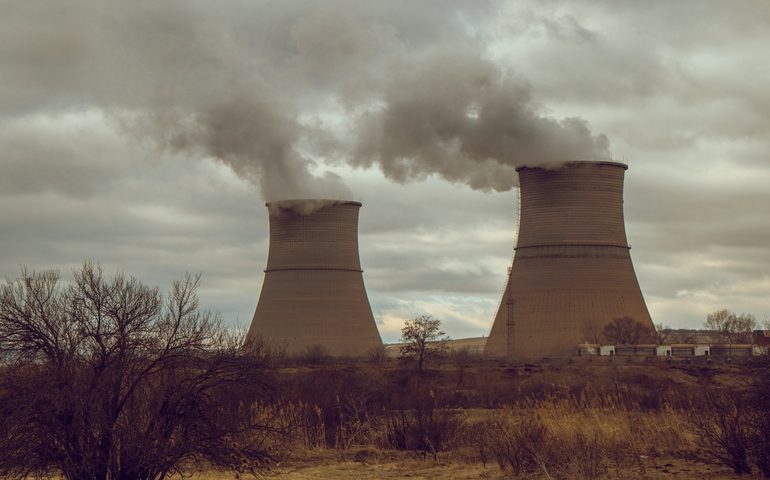Will a company director get into trouble if his company contributes to climate change risks?
All across the globe, weather patterns have, and are, changing dramatically and rapidly.
[1]. What is ‘Climate Change’ Risk?
In the Environmental, Social and Governance field, (or ‘ESG as it is fashionably called these days), climate change risk is the most worrying problem.
[2]. Why is that?
Sometimes economic and human activities injure the planet.
These endanger and change the climate across the entire regions.
Such activities are termed, ‘climate change risks’.
In the corporate context, if you are a director, you must examine your company’s activities and study whether these activities create climate change risks.
If your company’s activities spill dangerous effluents into rivers, or release noxious gases into atmosphere, or destroy rainforests, massacring wildlife and wiping out soil structures, then any such activity poses a serious risk to the planet, and to its climate.
[3]. So here are important questions:
Are you a director of a company?
Do you know what climate change risks are?
What are your legal duties towards climate change risks?
What happens if you break those duties?
Will the law on climate change risks change in the future, and if so, how?
How can you protect yourself? And the planet?
We now turn to answer these questions.
[4]. Start with some basic law
Any director of a company has two principal duties to the company under Section 213 of the Companies Act 2016.
First, a director must exercise ‘reasonable care, skill and diligence’ in his duties as a director.
Second, you must act in the best interest of the company.
Now, if climate change risks affect the business of your company, then you, as a director, must study all such risks, and eradicate them.
[5]. How much should you know about Climate Change Risks and opportunities?
Well, Self-Education in Climate Change Risks and Opportunities is a legal requirement in some countries.
Where climate change risks or ‘opportunities’ will affect the company, a director must educate herself on those issues.
This knowledge will help a director to ‘properly discharge’ her duties as director.
If not, you would have breached two kinds of laws: judge made law (or common law), and soon to be made parliamentary laws.
[6]. Have the laws in different counties become stricter on Climate Change Risks?
Yes.
Climate change risks law is developing rapidly all across the world.
[7]. What is the future trend in this area?
The way the climate has been deteriorating recently has alarmed governments all over the world.
Climate risk laws will become stricter across the globe.
Some countries now have laws that require company directors to: –
- determine if there are climate change risks in their business activities;
- determine how such risks will affect the company;
- decide what steps they will take to reduce these risks;
- what should directors do to understand this subject; and
- what points should boards and directors must compulsorily disclose to regulatory authorities about climate change risks.
Some of these rules, although they do not have the penal force of a Parliamentary Act, will soon become law all over the world.
These laws are expected to get tougher and stricter.
[8]. Some countries have gone out of the way to explain to companies how climate change risks can occur
Because of this, company directors cannot now say, “We do not know the different kinds of climate change risks in our business”.
Hong Kong, for example, brings these principles into play as early as the listing application stage.
Regulatory authorities have taken detailed steps to bring climate change risks to the knowledge of companies.
A splendid example is Hong Kong, which bristles with Climate Risk laws.
Corporate Boards are required to give detailed attention to the climate change risks and need to answer questions.
Where such risks exist, the regulators ask the board:
“Are you breaking these rules?”
“If Yes, disclose what these activities are, and explain the risks”.
In some countries, these self-disclosure regimes may soon become mandatory.
[9]. So, what is the consequence of breaking the law on Climate Change Risks and Opportunities?
A company can sue its directors if they fail to perform these duties, and if these failures result in losses to the company.
As the law now stands, shareholders can use existing common law to sue the company and its directors for increasing climate change risks.
Regulatory authorities in different countries are increasingly bent on making members of the board responsible for such risks.
There are other corporate fallouts as well.
At the lowest, shareholders can vote directors out of a board for being insensitive to climate change risks.
At the highest, companies may have to pay a hefty fine, get shut down, or have the directors face personal criminal sanctions.
Future parliamentary laws may impose these tougher sanctions.
So really, the writing is on the wall.
The question is, what are you going to do about it?





